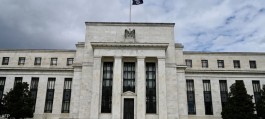For a market that treats Bitcoin exchange-traded fund (ETF) inflows as an indicator of demand for the native cryptocurrency, the recent outflows from these funds are fueling fears that the cryptocurrency's price decline has even more room to fall.
Investors withdrew nearly $1 billion from Bitcoin-tracking exchange-traded funds (ETFs) in the last trading session, marking the second-largest daily outflow across the group of 12 funds, according to data compiled by Bloomberg. BlackRock's Bitcoin ETF (ticker: IBIT) led the outflows with $355 million, followed by Grayscale (ticker: GBTC) and Fidelity (ticker: FBTC), each losing approximately $200 million. The group is on track for its worst week of outflows since February.
Launch of Bitcoin funds
The launch of Bitcoin ETFs last year reshaped how capital flows into the cryptocurrency market and how traders interpret investor sentiment. With investors withdrawing nearly $4 billion from these funds in the past month and Bitcoin falling by about 30% since then, these funds are no longer passive investment vehicles. They have become feedback loops, their movements charted, closely monitored, and pivotal to how risk is managed on the trading desks of both retail and institutional investors.
While inflows help push Bitcoin's price higher, the opposite is also true. For every billion dollars withdrawn from Bitcoin exchange-traded funds (ETFs), the cryptocurrency's price drops by approximately 3.4%, according to analysis by Alex Saunders of Citi Research.
Saunders wrote: Given that long-term asset holders are cautious and new investors are in no hurry, flows may not pick up anytime soon. Saunders had outlined a bearish scenario targeting Bitcoin at $82,000 by the end of this year. The largest cryptocurrency is currently trading around $85,000, after hitting a low of $80,553 earlier yesterday.
Cryptocurrency pressures
Cryptocurrencies have been under pressure for over a month, ever since a sudden sell-off wiped out billions of dollars in leveraged investment positions and contributed to a price spiral. At the same time, traders were concerned about the high valuations of artificial intelligence and lacked clarity on the Federal Reserve's interest rate cut strategy. As a result, Bitcoin—a high-risk asset traded 24/7—has only managed to rise in 18 trading sessions since October 10.
The currency is on track for its worst monthly performance since 2022, when a series of institutional collapses rocked the broader cryptocurrency sector. Investors in funds that provide direct access to the cryptocurrency suffered collective losses after Bitcoin fell below $89,600.
Prior to October, investors had flocked to various cryptocurrency tokens and products, fueled by expectations that the administration of US President Donald Trump would further integrate the sector into the mainstream financial system. While institutions have become more receptive to cryptocurrencies than ever before, individual traders still constitute a significant portion of the investment base. According to analysis by Bernstein, retail investors hold roughly three-quarters of the assets in Bitcoin exchange-traded funds (ETFs).
Cryptocurrency courses
Ilan Solot, chief global markets strategist at Marex Solutions, wrote: Many in this sector can no longer afford another cryptocurrency cycle after being completely exhausted, both financially and psychologically.
Despite this, there is no cause for alarm just yet. Recent outflows from Bitcoin spot exchange-traded funds (ETFs) represent only a small fraction of their total $113 billion in assets under management. Furthermore, the recent cryptocurrency market downturn has not deterred ETF issuers from launching new funds. Since October 10, 17 new cryptocurrency-linked funds have been launched, accounting for roughly 25% of all cryptocurrency-linked fund launches this year. Dozens more applications are still pending with the U.S. Securities and Exchange Commission (SEC).
Saunders, for his part, believes that demand for Bitcoin exchange-traded funds has not been completely wiped out.
But at FRNT Financial in Toronto, Stefan Ouellet is receiving calls from clients who are increasingly expressing concerns that the peak of $125,000 recorded in October may have been the point at which the decline began, at least for the time being.
It was a really sharp downturn, and I don't blame people for that, said Oulet, CEO and co-founder of FRNT, which works with institutional clients.
Cryptocurrency fund losses
Amid this sense of confidence among investors, many of the recently launched cryptocurrency exchange-traded funds (ETFs) are recording declines of more than 10%.
Matt Maley, chief market strategist at Miller Tabak + Co., said: “With all the talk of bubbles in recent months, this asset class’s inability to deliver any sustained bounce lately has already instilled a real amount of fear into the market, and investors are now selling relentlessly.”






































